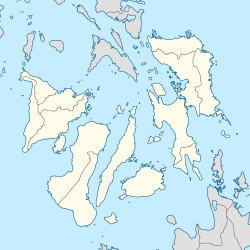| Parishes | Vicariate of
San Carlos
(Central) | - San Carlos Borromeo
- Sto. Niño
- Birhen sa Antipolo Mission Station
- Mary Star of the Sea Mission Station (Sipaway Island)
- St. Jude Thaddeus
- St. Vincent de Paul Mission Station
|
|---|
Vicariate of
St. Peter
the Apostle
(Calatrava) | - St. Peter the Apostle (Calatrava, Negros Occidental)
- St. Isidore the Farmer (Calatrava, Negros Occidental)
- Mother of Perpetual Help (Calatrava, Negros Occidental)
- Our Mother of Perpetual Help Mission Station (Calatrava, Negros Occidental)
- St. Anthony de Padua (Toboso, Negros Occidental)
- St. Mary of the Lake Mission Station (Don Salvador Benedicto)
|
|---|
Vicariate of
St. Joseph
(Sagay) | - St. Joseph Parish (Sagay, Negros Occidental)
- St. James the Greater (Sagay, Negros Occidental)
- St. Roch (Sagay, Negros Occidental)
- Hiyang Hiyang Mission Station (Cadiz, Negros Occidental)
- St. Vincent Ferrer (Sagay, Negros Occidental)
- Sts. Louis and Zelie Mission Station (Sagay, Negros Occidental)
- Our Lady of Peace (Escalante, Negros Occidental)
- Our Lady of Mount Carmel (Escalante, Negros Occidental)
- St. Francis of Assisi (Escalante, Negros Occidental)
- Triumph of the Cross (Escalante, Negros Occidental)
|
|---|
Vicariate of
Sto. Niño
(Cadiz) | - Holy Child (Cadiz, Negros Occidental)
- San Lorenzo Ruiz Quasi-Parish (Cadiz, Negros Occidental)
- St. Andre Bessette Mission Station & Balay ni Lolo Jose (Cadiz, Negros Occidental)
- St. John the Baptist Quasi-Parish (Sagay, Negros Occidental)
- Sto. Rosario (Sagay, Negros Occidental)
- Holy Family Chaplaincy (Sagay, Negros Occidental)
|
|---|
Vicariate of
St. Roch
(Manapla) | - St. Roch (Manapla)
- San Pablo Mission Station (Manapla)
- St. Michael the Archangel Quasi-Parish (Manapla)
- St. Joseph the Worker (Cadiz, Negros Occidental)
- St. Peregrine Parish (Cadiz, Negros Occidental)
|
|---|
Vicariate of the
Our Lady of
Buensuceso
(Guihulngan) | - Our Lady of Buensuceso (Guihulngan)
- Immaculate Conception (Guihulngan)
- Our Lady of Lourdes Mission Station (Guihulngan)
- Presentation of the Blessed Virgin Mary Mission Station (Guihulngan)
- St. Vincent Ferrer Mission Station (Guihulngan)
- San Pedro Calungsod Mission Station (Guihulngan)
- St. Vincent Ferrer Quasi-Parish (La Libertad, Negros Oriental)
- St. Sebastian (La Libertad, Negros Oriental)
- St. Isidore the Farmer (Vallehermoso, Negros Oriental)
|
|---|
Vicariate
of Mountains
(Canlaon) | - St. Joseph (Canlaon)
- Nuestra Señora de las Flores Mission Station (Canlaon)
- San Isidro Labrador Mission Station (Canlaon)
- Our Lady of Guadalupe (Vallehermoso, Negros Oriental)
- Our Lady of the Mountains Quasi Parish (San Carlos, Negros Occidental)
- Holy Child (San Carlos, Negros Occidental)
- Our Lady of Peace and Good Voyage (San Carlos, Negros Occidental)
- Our Lady of the Miraculous Medal (Don Salvador Benedicto, Negros Occidental)
|
|---|
|
|---|




